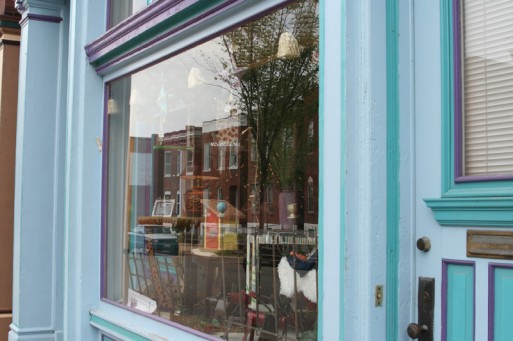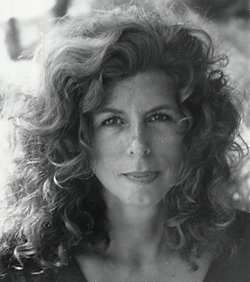 I don’t think it’s unfair to say that human beings have a tendency to take things for granted. Even the little, simple joys in life are worth being grateful for, but too often we gloss over them to complain about our problems. I’ve never been much of an optimist myself, but I try to acknowledge the good things when I recognize them. Poet Marie Howe’s “What the Living Do,” written after her younger brother’s death, does this too. At first, she defines “living” in terms of the negatives in life; that is, until the end of the poem, when she realizes that there is more to life than the dilemmas.
I don’t think it’s unfair to say that human beings have a tendency to take things for granted. Even the little, simple joys in life are worth being grateful for, but too often we gloss over them to complain about our problems. I’ve never been much of an optimist myself, but I try to acknowledge the good things when I recognize them. Poet Marie Howe’s “What the Living Do,” written after her younger brother’s death, does this too. At first, she defines “living” in terms of the negatives in life; that is, until the end of the poem, when she realizes that there is more to life than the dilemmas.
The poem is addressed to Johnny, and it reads like a casual note intended for another living person. Commonplace problems are described the way they would be if someone was asked simply, “How was your day?” Howe opens, “Johnny, the kitchen sink has been clogged for days, some utensil probably fell down there” (1). She continues, “And the Drano won’t work but smells dangerous, and the crusty dishes have piled up/waiting for the plumber I still haven’t called” (2-3). The poet addresses her brother not in the grand, dramatic way that other poets might, but as if she were in a conversation with him. The next line clarifies that this is, in fact, the way their conversations used to be: “This is the everyday we spoke of” (3).
Beautiful, natural things are happening all the while: at her home, “the sunlight pours through/the open living-room windows…” (4-5), but the focus is on the negative: “…because the heat’s on too high in here and I can’t turn it off” (5). Howe goes on to describe more unfortunate little occurrences: “dropping a bag of groceries in the street…” (6), “spilling [her] coffee down [her] wrist and sleeve” (8). She comments: “I’ve been thinking: This is what the living do” (7). At this moment, that is her entire perception of life, that it’s just a series of dull, and usually discouraging moments.
But her brother was able to see outside of this perspective, what he called “that yearning” (10). He recognized the impatience of mankind, the time spent wishing rather than acting: “We want the spring to come and the winter to pass…/we want more and more and then more of it” (11-12). We’re always either looking forward to the future, or regretting the past. Rarely are we ever truly living in the moment. But despite Johnny’s wisdom, he passed away. As Howe puts it, life is “what [he] finally gave up” (11).
His insight was not completely lost on Howe, though. Even after his death, Howe has been able to find herself appreciating the moment:
But there are moments, walking, when I catch a glimpse of myself in the window glass,
say, the corner video store, and I’m gripped by a cherishing so deep
for my own blowing hair, chapped face, and unbuttoned coat that I’m speechless:
I am living. I remember you. (13-16)
At the most spontaneous of times, Howe pauses and relishes what she has, even if it’s not perfection. She relishes life, because she has it; this is what makes her realize that life is about the good, not the bad. And remembering her brother, whom she loved so much, is certainly a good thing.
*Top Photo Credit: my.opera.com
*Marie Howe Photo Credit: nyswiblog.blogspot.com
Related Reading:
- More on the poem and other works by Marie Howe
- “Starting Anew” (SevenPonds)

 “What the Living Do” by Marie Howe
“What the Living Do” by Marie Howe



 John Mulaney’s “Funeral Planning” on Netflix: No Real Plan
John Mulaney’s “Funeral Planning” on Netflix: No Real Plan

 Composting Bodies Is Now Legal in a Dozen States
Composting Bodies Is Now Legal in a Dozen States














